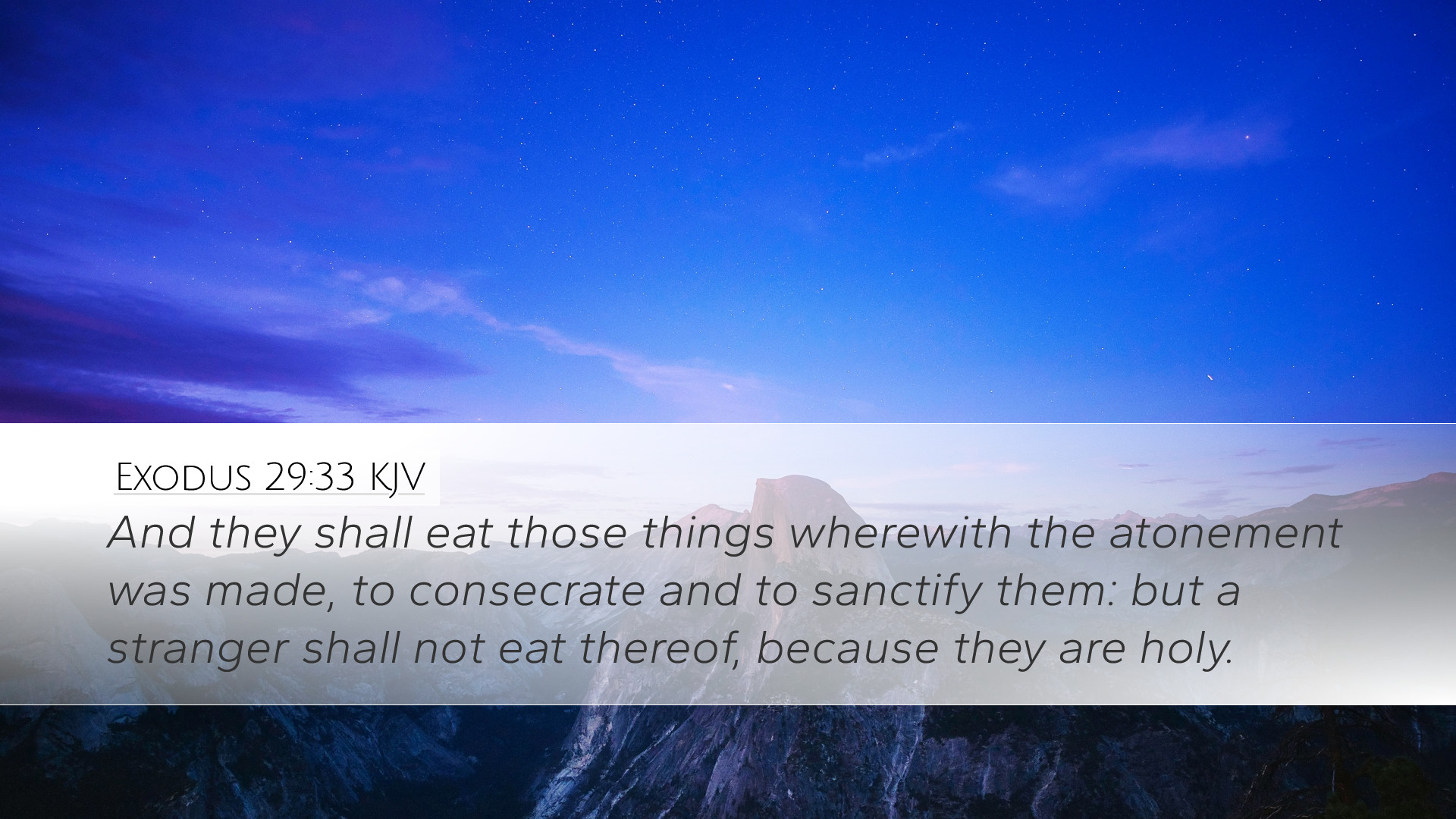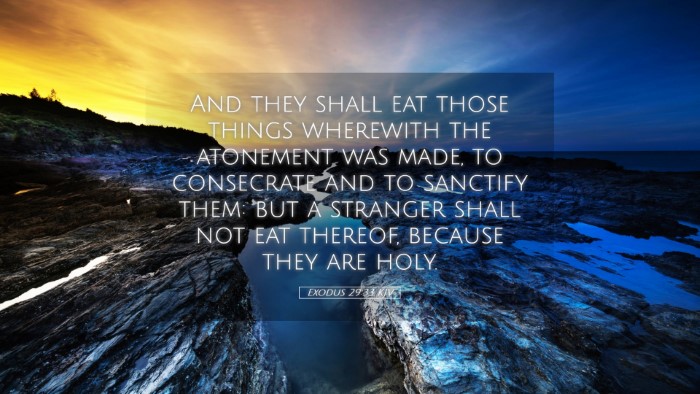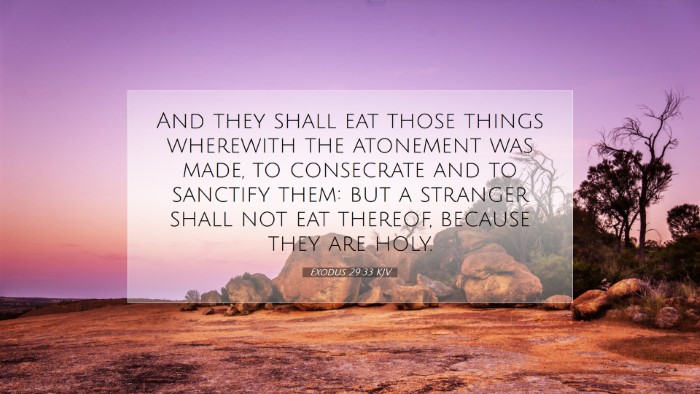Exodus 29:33 Commentary
Verse Reference: Exodus 29:33 states, "And they shall eat those things wherewith the atonement was made, to consecrate and to sanctify them: but a stranger shall not eat thereof, because they are holy."
Introduction
This verse occurs within the broader context of the consecration of Aaron and his sons as priests. It provides essential insights about the holiness of the sacrificial offerings and the implications for those who partake of them. Here, we draw on the insights of renowned commentators such as Matthew Henry, Albert Barnes, and Adam Clarke to better understand the theological and practical ramifications of this scripture.
The Concept of Holiness
In this verse, the emphasis on holiness is paramount. The offerings made during the consecration process are designated as holy. Matthew Henry notes that the term "holy" signifies something set apart for God’s purposes. These sacrifices were not merely rituals but served as a means to sanctify the priests and, thereby, the community they represented.
Albert Barnes further elaborates, explaining that the holiness of these offerings illustrated the sacredness of the ministry. This sanctity was reflected in the requirement that only those appointed by God—namely, Aaron and his sons—could partake of these provisions. This exclusivity underscores the seriousness of their role as mediators between God and the people.
Partaking in the Offerings
The directive that the priests were to eat the offerings is significant. Adam Clarke points out that this act symbolizes internalizing the role and responsibilities of the priesthood. By consuming the offerings, the priests not only participated in the atonement process but also physically became a part of that which was offered to God, reinforcing their identity as holy servants.
Moreover, Matthew Henry states that the partaking demonstrates a communion with God that was essential in the Old Covenant. It affirms that the priest's sustenance comes from the spiritual offerings made on behalf of the people. This foreshadows the New Testament understanding of communion and the shared life of believers in Christ, the ultimate High Priest.
Restriction on Strangers
The clause indicating that "a stranger shall not eat thereof" introduces an important concept regarding the community of faith. Albert Barnes discusses the exclusion of non-priests, emphasizing that this restriction maintained the sanctity and specificity of sacred things. The holiness conferred on the offerings required that only those designated by God could approach them.
This also reflects the nature of covenant relationship in the Old Testament, where not all who showed interest could partake in the blessings of God without commitment to His covenant. Matthew Henry suggests that it serves as a reminder that access to God and His provisions requires a relationship governed by His law and grace.
Implications for Ministry
For modern pastors and theologians, this verse presents profound implications regarding ministry. It speaks to the need for a clear understanding of the call to serve God and the seriousness of their role. As commented on by Adam Clarke, the requirements for holiness and sanctification are not diluted over time; rather, they are amplified in the Christian context, where we are called to embody Christ’s holiness.
Pastors must be aware of the weighty nature of their blessings and responsibilities. Just as the priests had specific roles and guidelines, today’s ministers are similarly tasked with shepherding their congregations in a way that reflects God's holiness and truth. The essence of service is thus rooted in one’s relationship with God and commitment to His covenant principles.
Theological Reflections
The sacrificial system illustrated in Exodus 29:33 offers a window into the character of God, who desires holiness and relationships built on covenant loyalty. Albert Barnes notes the continuity of this theme into the New Testament, where believers are called "a royal priesthood" (1 Peter 2:9). The implications here extend beyond the ceremonial; they speak to an enduring truth about God’s desire for His people to maintain His standards of holiness.
Furthermore, Matthew Henry reflects on the importance of understanding one's identity as a member of God's family. The communal aspect of the priest’s rights to the offerings conveys the reality that believers today share in Christ’s sacrificial work and the resulting benefits.
Conclusion
In summary, Exodus 29:33 provides a rich tapestry of insights into the nature of holiness, the role of the priest, and the implications for communal worship and ministry. The call to consume the offerings symbolizes vital participation in God’s work of atonement, while the exclusion of strangers emphasizes the necessity of covenant relationship with God. As we reflect on this passage, we are challenged to embrace our identities as participants in God’s redemptive plan, maintaining the holiness thatHe has called us to uphold.


